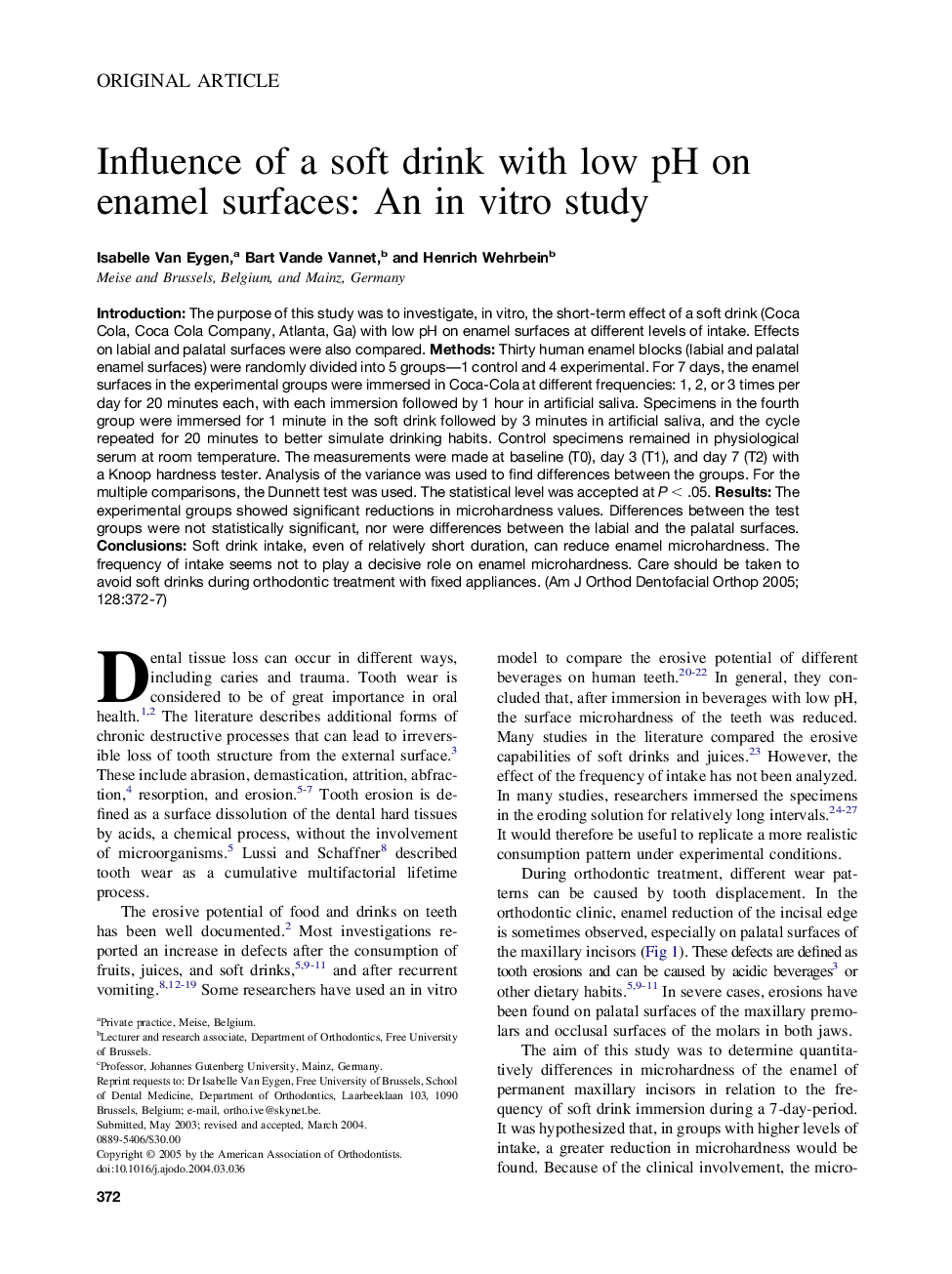| Article ID | Journal | Published Year | Pages | File Type |
|---|---|---|---|---|
| 9992676 | American Journal of Orthodontics and Dentofacial Orthopedics | 2005 | 6 Pages |
Abstract
Introduction: The purpose of this study was to investigate, in vitro, the short-term effect of a soft drink (Coca Cola, Coca Cola Company, Atlanta, Ga) with low pH on enamel surfaces at different levels of intake. Effects on labial and palatal surfaces were also compared. Methods: Thirty human enamel blocks (labial and palatal enamel surfaces) were randomly divided into 5 groups-1 control and 4 experimental. For 7 days, the enamel surfaces in the experimental groups were immersed in Coca-Cola at different frequencies: 1, 2, or 3 times per day for 20 minutes each, with each immersion followed by 1 hour in artificial saliva. Specimens in the fourth group were immersed for 1 minute in the soft drink followed by 3 minutes in artificial saliva, and the cycle repeated for 20 minutes to better simulate drinking habits. Control specimens remained in physiological serum at room temperature. The measurements were made at baseline (T0), day 3 (T1), and day 7 (T2) with a Knoop hardness tester. Analysis of the variance was used to find differences between the groups. For the multiple comparisons, the Dunnett test was used. The statistical level was accepted at P < .05. Results: The experimental groups showed significant reductions in microhardness values. Differences between the test groups were not statistically significant, nor were differences between the labial and the palatal surfaces. Conclusions: Soft drink intake, even of relatively short duration, can reduce enamel microhardness. The frequency of intake seems not to play a decisive role on enamel microhardness. Care should be taken to avoid soft drinks during orthodontic treatment with fixed appliances.
Related Topics
Health Sciences
Medicine and Dentistry
Dentistry, Oral Surgery and Medicine
Authors
Isabelle Van Eygen, Bart Vande Vannet, Henrich Wehrbein,
